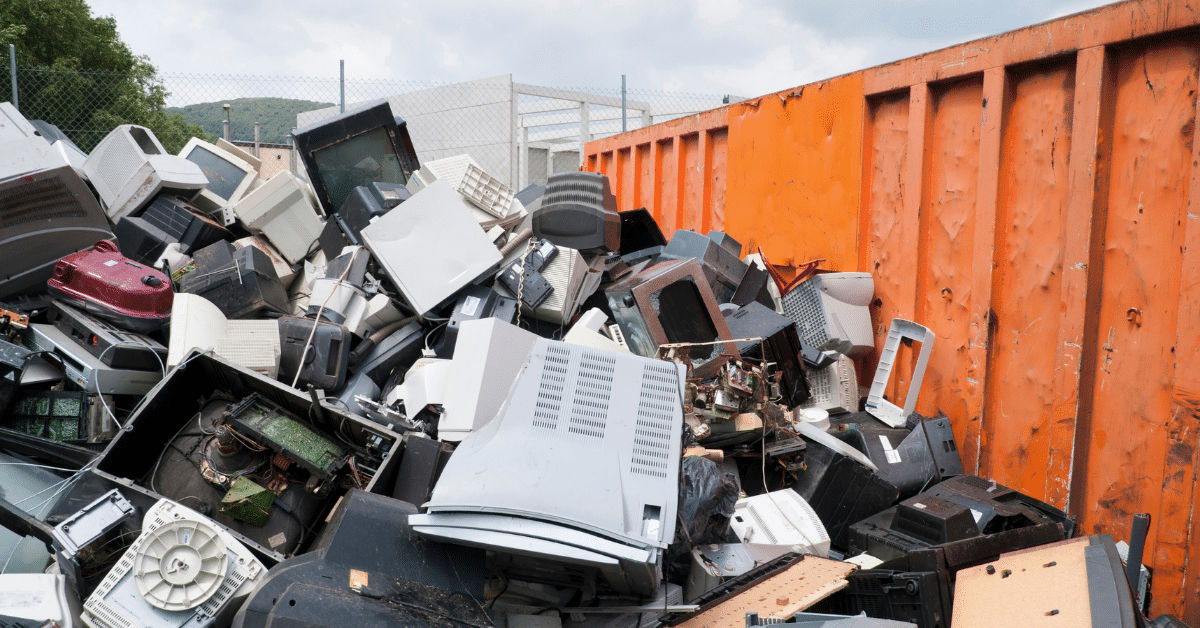How ITAD Drives Sustainability and Reduces E-Waste

Last week, the IMUG topic was focused on Sustainability. I joined the call as I am always interested in how IT departments consider this facet of disposition services as part of the beneficial impact.
In 2022 the world generated 62 million metric tons of electronic waste. Each Metric ton represents 2,204.63 pounds. That equates to a staggering 136,686,602,554,624 Pounds of waste. That is over 100 trillion pounds! The bad part is that it is growing every year and the capacity for processing is stagnant, lowering the effective rate of recycling!
The US is among the largest producers of e-waste and has no federal law mandating the recycling of electronics. So how does this cross path with IT Asset Management? As one of the primary benefits alongside of data security and compliancy, your Certified Disposition vendor provides you with an impactful solution. Both e-Stewards and R2 share a common goal of environmental sustainability and e-Stewards is built around the Basal Convention, which 81 countries has signed on to as a global law for managing the movement and processing of electronic wastes.
IT Asset Disposition (ITAD) supports sustainability by ensuring responsible management of end-of-life IT equipment, minimizing environmental impact, and promoting a circular economy. Here are some of the area’s how ITAD contributes:
- E-Waste Reduction: ITAD services help prevent electronic waste (e-waste) from ending up in landfills, where harmful chemicals can leak into soil and water. Instead, outdated or broken devices are responsibly recycled or repurposed.
- Commodity Recovery: IT hardware contains valuable materials like precious metals, rare earth elements, copper, steel, aluminum, and plastics. ITAD companies recover and recycle these materials, reducing the need for mining and the associated environmental impact.
- Refurbishing and Reuse: ITAD facilitates the refurbishment of equipment, extending the life of devices. Refurbished equipment can be resold or donated, which reduces the demand for new products and conserves energy and materials used in manufacturing.
- Data Security and Compliance: ITAD ensures that data is securely wiped or destroyed in a sustainable manner, complying with regulations like GDPR. This reduces the need for physical destruction methods, which can be more harmful to the environment.
- Lower Carbon Footprint: By extending the lifecycle of IT assets through reuse and refurbishment, ITAD reduces the energy and resources needed to manufacture new devices, thus lowering the overall carbon footprint of organizations.
- Circular Economy: ITAD promotes the principles of a circular economy by keeping products and materials in use for as long as possible, reintroducing them into the market, and reducing waste generation.
- Certifications and Reporting: Many ITAD providers are certified by organizations like e-Stewards or R2 (Responsible Recycling), which ensures that they follow environmentally sound practices. These certifications help organizations measure their sustainability efforts and report on them.
By integrating ITAD into their sustainability strategies, companies can reduce their environmental impact, comply with regulations, and contribute to the conservation of natural resources. Reach out to your e-Stewards or R2 certified partner and let them help you document your impact on the environment!
